 Petzlover
Petzlover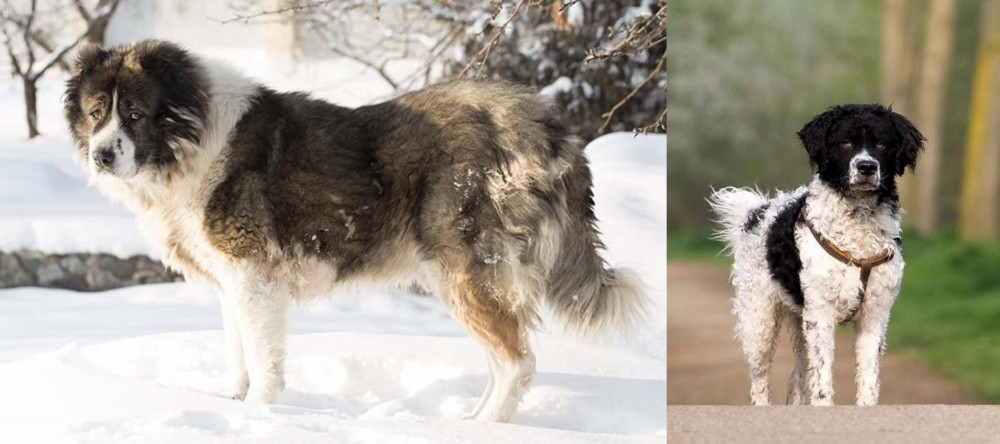 Caucasian Shepherd is originated from Russia but Wetterhoun is originated from Netherlands. Caucasian Shepherd may grow 16 cm / 7 inches higher than Wetterhoun. Caucasian Shepherd may weigh 65 kg / 144 pounds more than Wetterhoun. Both Caucasian Shepherd and Wetterhoun has almost same life span. Both Caucasian Shepherd and Wetterhoun has almost same litter size. Both Caucasian Shepherd and Wetterhoun requires Moderate Maintenance.
Caucasian Shepherd is originated from Russia but Wetterhoun is originated from Netherlands. Caucasian Shepherd may grow 16 cm / 7 inches higher than Wetterhoun. Caucasian Shepherd may weigh 65 kg / 144 pounds more than Wetterhoun. Both Caucasian Shepherd and Wetterhoun has almost same life span. Both Caucasian Shepherd and Wetterhoun has almost same litter size. Both Caucasian Shepherd and Wetterhoun requires Moderate Maintenance.
 This working dog is more than 2 000 years old, hailing from the Caucasus Mountains near the Georgian Republic, Russia.
This working dog is more than 2 000 years old, hailing from the Caucasus Mountains near the Georgian Republic, Russia.
The Caucasian Shepherd Dog is an ancient breed, always having been used to guard livestock in the mountains. Some believe they came from domesticated wolves, while others believe their ancestry includes Mastiffs and other breeds.
It was in the 1960s that the dog was used in Germany for patrol along the Berlin Wall. This dog is also known as the Caucasian Ovcharka and he is large and powerful, always being ready to take on anyone who threatens him or the livestock he is guarding.
His origins can be traced far back and eventually the dog found its ways to the USA where dog clubs were formed.The Caucasian Shepherd Dog is one of the oldest Molosser breeds, and today they are mostly appreciated for being wonderful family companions and watchdogs.
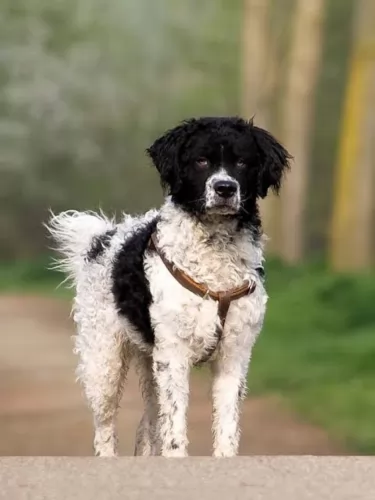 The Wetterhoun is a water dog developed in the 1500 or 1600s to hunt otters. The breed was developed by the Frisians in the Netherlands near the Northwest corner. In addition to catching otters in the lakes near by, they were also used as gundogs to hunt game. They are a fearless, tough and loyal working dog. They love the water and they are build for it with a waterproof coat and tight tail that is spiraled. They will swim happily in freezing cold weather as well.
The Wetterhoun is a water dog developed in the 1500 or 1600s to hunt otters. The breed was developed by the Frisians in the Netherlands near the Northwest corner. In addition to catching otters in the lakes near by, they were also used as gundogs to hunt game. They are a fearless, tough and loyal working dog. They love the water and they are build for it with a waterproof coat and tight tail that is spiraled. They will swim happily in freezing cold weather as well.
The Wetterhoun is rare and not seen outside of the Netherlands. Descendent of the Water Dog, that is now extinct, he is probably a relative of many spaniel types that also call the Water Dog their ancestor. Yet the Wetterhoun is not a spaniel or spaniel type.
The breed almost disappeared during World War II, like many others, they brought back and are now becoming more and more popular. The breed is only recognized by the Federation Cynologique Internationale and the United Kennel Club. AKC does not recognize them, but there are many hunting clubs and other registries that do. They are often promoted as one of the rare breeds.
 The Caucasian Shepherd is a large, impressive looking dog standing at between 64 – 75cm in height and weighing between 45 – 70 kg. He has an almost bear-like appearance. His coat can be shortish or even fairly long, and in different colors such as white, tan, brindle, grey and cream with a black mask.
The Caucasian Shepherd is a large, impressive looking dog standing at between 64 – 75cm in height and weighing between 45 – 70 kg. He has an almost bear-like appearance. His coat can be shortish or even fairly long, and in different colors such as white, tan, brindle, grey and cream with a black mask.
The puppies are born black and then lighten as they grow up. He has a large head with the muzzle being smaller than the skull, narrowing slightly. The nose is black and the ears are set high and are floppy with dark eyes. The tail is set high and is long.
The Caucasian Shepherd is an intelligent breed but he must be properly trained and socialized as he can be stubborn and want to go his own way.
He is a balanced dog and he won’t deliberately hurt whom he regards as family, but he shows distrust towards strangers. While socialization and training relax and calm a dog, the Caucasian Shepherd isn’t regarded as the best dog to have with children around. This is because he comes from a lineage of guard dogs, bred to fight and guard.
He is a dog breed that will require a firm, strong owner and if you don’t have a lot of time on your hands, the Caucasian can be difficult to manage and perhaps isn’t the best choice for a first-time dog owner.
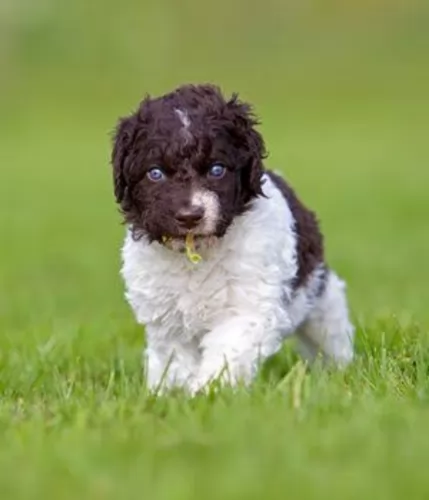 The Wetterhoun is a compact, medium sized breed weighing about 55 to 77 pounds. Great water dogs they are athletically built with low set ears hanging next to their heads, a waterproof coat, distinctive eyes with a very serious expression and a tightly curled tail held aloft over the back. Their coat is waterproof, somewhat oily, curly and thick. The fur is of a smoother texture on the ears, head, and legs. They can be solid black, solid brown, brown with white, or black with white.
The Wetterhoun is a compact, medium sized breed weighing about 55 to 77 pounds. Great water dogs they are athletically built with low set ears hanging next to their heads, a waterproof coat, distinctive eyes with a very serious expression and a tightly curled tail held aloft over the back. Their coat is waterproof, somewhat oily, curly and thick. The fur is of a smoother texture on the ears, head, and legs. They can be solid black, solid brown, brown with white, or black with white.
 Loyal, strong, and brave, the Caucasian Shepherd Dog does an excellent job protecting his human family. He is a territorial dog and in the past he has always been ready to take on wolves and bear to protect his sheep. He isn't the best choice for first time dog-owners and where there are small children in the home.
Loyal, strong, and brave, the Caucasian Shepherd Dog does an excellent job protecting his human family. He is a territorial dog and in the past he has always been ready to take on wolves and bear to protect his sheep. He isn't the best choice for first time dog-owners and where there are small children in the home.
He will do well to be trained and socialized as he becomes an obedient, patient, gentle, loving pet that becomes an excellent companion and protector.
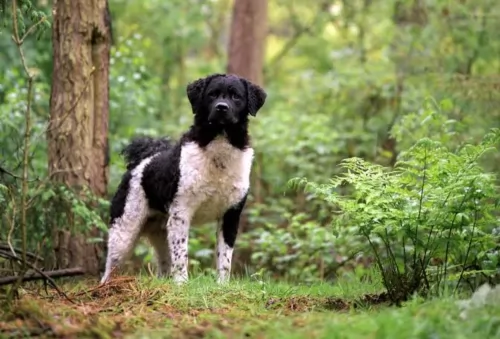 3.Adaptability – not a great apartment dog even though he is not that big. They need space. They need a job and they will finish their job at their own pace no matter what you say. It is impossible to train this trait out of them.
3.Adaptability – not a great apartment dog even though he is not that big. They need space. They need a job and they will finish their job at their own pace no matter what you say. It is impossible to train this trait out of them.
4.Learning ability Very high learning ability, very eager to learn and very smart. He is stubborn about finishing whatever job he is working on
 Like all breeds there may be some health issues, even though the Caucasian Shepherd is generally a healthy dog. There are some common illnesses that every dog can get and which every responsible dog owner should be aware of -
Like all breeds there may be some health issues, even though the Caucasian Shepherd is generally a healthy dog. There are some common illnesses that every dog can get and which every responsible dog owner should be aware of -
One or two episodes of diarrhea isn’t an emergency, but ongoing diarrhea can lead to dehydration. If your dog is vomiting, he is lethargic and constantly emptying his bowels, see your vet if the diarrhea persists.
Parasites such as fleas and ticks and even internal parasites such as intestinal worms can drain the life from your pet. It is wise to find out about different parasites so that you can protect your dog. Find out what your vet’s treatment options are for parasites.
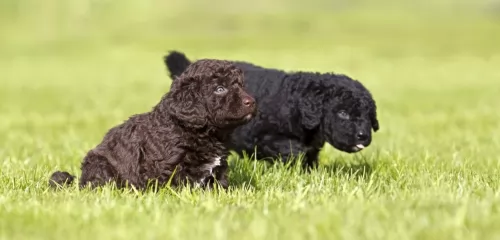 A hardy and healthy breed they do not have severe health issues. But like every his
A hardy and healthy breed they do not have severe health issues. But like every his
• Ear Infections – like any breed with hanging ears they can be prone to infection. This is particularly true because the dogs are in the water a lot. Be sure to clean and dry them after every water episode and inspect them on a regular basis even if the dog has not been in the water.
• Patellar Luxation – Knee cap issue with movement and inflammation. Can cause lameness and arthritis.
 The Caucasian Shepherd Dog has a thick double coat that will certainly require brushing twice a week. The coat comes in different lengths – short, medium and long. The hair is mostly long and the long tail is also feathery. The best way to groom your large, furry pet is to invest in some good grooming tools such as a good brush to keep your pet’s hair in tip-top condition.
The Caucasian Shepherd Dog has a thick double coat that will certainly require brushing twice a week. The coat comes in different lengths – short, medium and long. The hair is mostly long and the long tail is also feathery. The best way to groom your large, furry pet is to invest in some good grooming tools such as a good brush to keep your pet’s hair in tip-top condition.
His nails will need to be trimmed regularly, his ears will also need to be checked to avoid wax build-up and the accumulation of grime. This can lead to an ear infection. His teeth should be brushed 2 or 3 times a week with special dog toothbrush and toothpaste.
The Caucasian Shepherd isn’t going to do well in a small home with tiny garden in the city. He is a big dog that will require a large yard even though he is a fairly low-energy dog. He will be suited to a family that is active, that will take him on daily walks, hikes and include some ball games.
You will need to change your Caucasian Shepherd Dog’s food as he goes through the different phases of his life, from puppy to adulthood. Speak to your veterinarian about a commercially produced dog food is you’re unable to give him home-made food. These foods are available in breed-specific and age-specific formulas.
Reputable breeders will also help you ensure that you know how to start feeding your puppy. Caucasian Shepherds are a large breed and apart from their kibble, you’ll want to include rice, vegetables and cooked chicken from time to time in his kibble and also include raw meat occasionally.
If you're unsure, ask your veterinarian or breeder about the best diet to ensure his longevity. Clean, fresh water should be available at all times.
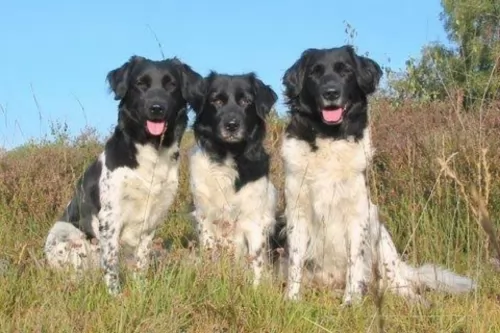 1Feeding the puppy -This is an active, hunting and swimming breed. They need good nutrition and high quality puppy food. A food formulated for active breeds or hunting dogs would be best. Feed your puppy in smaller amounts 3-4 times per day.
1Feeding the puppy -This is an active, hunting and swimming breed. They need good nutrition and high quality puppy food. A food formulated for active breeds or hunting dogs would be best. Feed your puppy in smaller amounts 3-4 times per day.
2.Feeding the adult - This is an active, hunting and swimming breed. They need good nutrition and high quality adult food. A food formulated for active breeds or hunting dogs would be best. Feed your adult twice per day.
4. Games and Exercises – This is an active working dog that needs a lot of exercise every day. A 30 minute walk is only the beginning. They need outdoor time to play and run. They need to swim if at all possible.